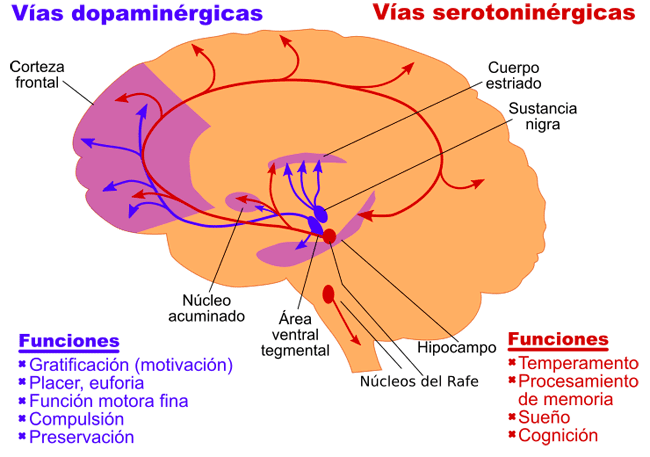As parents of adults with mental disorders point out, the first signs that "something is wrong" with their children appear in adolescence. It was already known that we are particularly vulnerable to psychiatric disorders during adolescence (including schizophrenia, depression and drug addiction), but the discovery of a new gene, linked to this stage, could be revealing when it comes to better understanding the development of mental disorders.
Researchers at the Douglas Research Center, associated with McGill University, have identified the DCC gene; also called the "adolescent gene." This gene controls dopamine connectivity in the prefrontal area during adolescence; so a dysfunction of this (for example, due to stress or drug abuse) could have consequences, in the long term, in adolescent mental health.

The prefrontal area (associated with decision making, judgment making and flexibility) is a crucial area for learning, motivation and cognitive processes. Because this brain region continues to develop into adulthood, is highly susceptible to being shaped by the experiences of adolescence.
“Certain psychiatric disorders could be related to alterations in the function of the prefrontal area, and with changes in dopamine activity ", reports Cecilia Flores, the main person in charge of this research and professor of psychiatry at McGill University. “Although prefrontal wiring continues to develop into early adulthood, these mechanisms were, until now, totally unknown".
According to the researchers, this discovery provides the first clues for a better understanding of brain development, and could hold promise in dealing with severe mental disorders.
“What we are trying to find is the function and the amount of DCC, during adolescence, that produces the vulnerability to certain psychiatric disorders in adulthood "Flores reported to the CTV News channel. "The study suggests that the amount or levels of the DCC gene, during adolescence, may change depending on personal experiences".
Dr. Hazen Gandy, a child and adolescent psychiatrist at CHEO, notes that the work was partially done on mice. Which means that there is still a lot of work to do to find out if the CDD gene plays the same role in humans.
“It must be taken into account that it is an investigation that we have carried out in animal models; so we have to be very careful when transferring what we find in them to the field of human behavior "Gandy told CTV News. "It's one piece of the huge puzzle about understanding human brain development.. I think it tells us both the need to focus on early detection, as well as using better avenues of intervention in adolescents ”.
Psychiatrists agree with the idea that early therapy and support for adolescents who have mental problems, would lead to healthy adult life. "If you receive any type of intervention, it is likely that you can correct abnormalities in brain function"Ridha Joober, a psychiatrist working at McGill University, told CTV News.
“Research points to the need to treat adolescents with symptoms of mental disorders as soon as possible"Joober added. "It is important to intervene very early to be able to correct and help young people who suffer from this type of disorder."
It is true that there is still a lot of work to be done, as Dr. Hazen pointed out. But if this influence of the "adolescent gene" in the human brain is finally confirmed, the development of new treatment programs could significantly reduce the occurrence of mental disorders and improve the quality of life in adulthood. This would suppose a breakthrough in the field of psychiatry and psychology. Fountain